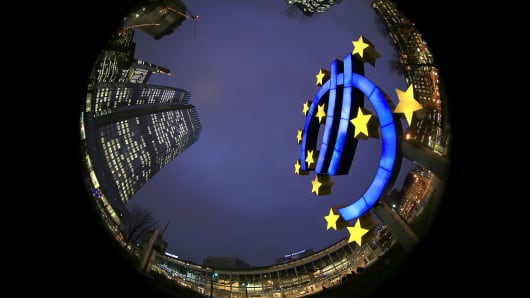This is in large part due to the European Central Bank, the Bank of England, and the U.S. Federal Reserve. Surely, this summer is the time for Mario Draghi to relax with an Campari and soda.
So why are there growing rumblings from some quarters about vicious circles, or even "circles of confusion," (as Lloyds strategists put it)?
First of all, when markets are divorced from fundamentals, eyebrows start (rightly) being raised. The flight into peripheral bond markets has been one of the most prominent trends of this year, as Spain and Ireland in particular saw the cost of repaying their debt fall.
Much of this can be explained by the flight out of emerging markets, and the search for return. Yet it is still difficult to rationally justify the Irish 10-year bond yield being lower than that on U.S. Treasurys.
And it looks as though companies are still hoarding cash rather than spending it to create jobs or otherwise give a fillip to the real economy. Capital expenditure at the big non-financials fell by 1 percent in real terms last year, and is expected to shrink by another 0.5 percent this year, according to ratings agency S&P.
Read MoreMarkets' new game: Guess the rate hike timing
The euro continues to be strong enough against the dollar to make it a concern for policymakers, and potentially discourage investment.
Small business lending is still in a dire state, as shown by the Bank of England credit conditions survey last month, where the proportion of small business loans being approved plummeted to -11.9. The ECB has tried to take action on this, via the new TLTRO package, but this may just end up being another instrument for banks to pass funds between themselves, rather than lend.
Draghi's pledge to do "whatever it takes" to save the euro helped calm markets, but may ultimately have been self-defeating. Many now expect quantitative easing (effectively money printing) from the central bank, to the extent that he may be forced to carry it out whether he wants to or not.
Still, for serious consequences, the market would have to seriously challenge the ECB by betting against it. There doesn't seem to be appetite for that, yet.



